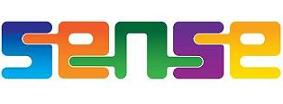| Sense | |
|---|---|
 | |
| Paradigm | object-oriented, educational, event-driven |
| Designed by | The Open University |
| Developer | The Open University |
| First appeared | 2008 |
| Stable release | Build 136 |
| Typing discipline | Dynamic |
| Implementation language | Squeak |
| OS | Windows, OS X, Linux [1] |
| Filename extensions | .sb [2] |
| Website | sense |
| Major implementations | |
| Scratch | |
| Influenced by | |
| Scratch | |
Sense is an educational programming environment created by The Open University (OU) in the United Kingdom. [3] [4] It uses a drag-and-drop programming environment designed to teach students the fundamentals of computer programming, using different shape and colour "blocks" selected from a palette of available commands, meaning that the student needs no prior experience of programming nor need to learn a syntax. It is based on the Scratch programming language developed by the MIT Media Lab, [5] and uses .sb files [6] like Scratch but the two pieces of software cannot use each other's files. [7]
The Sense programming environment is designed to work in conjunction with the SenseBoard, a specialised piece of hardware which connects to a user's computer via a USB connection. [8] [9] The SenseBoard has different input types such as sensors for infrared, light, sound (microphone), and temperature (thermometer), and outputs such as a motor and light emitting diodes (LEDs). [10]
Sense and the SenseBoard are primarily used as part of the OU's My Digital Life (TU100) module, [11] but is also used to a lesser degree on other modules. Sense was trialed in London schools in late 2012.